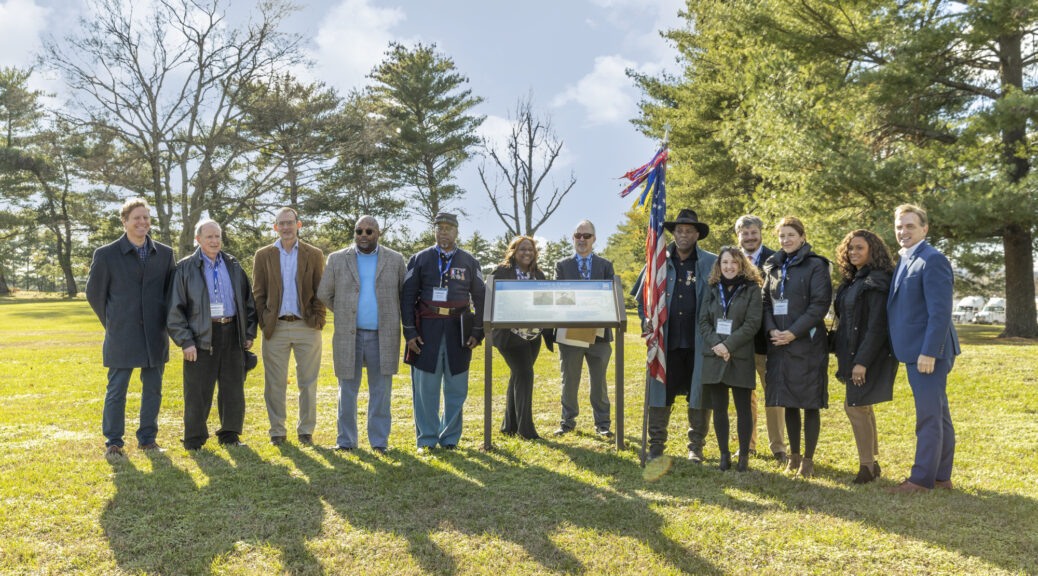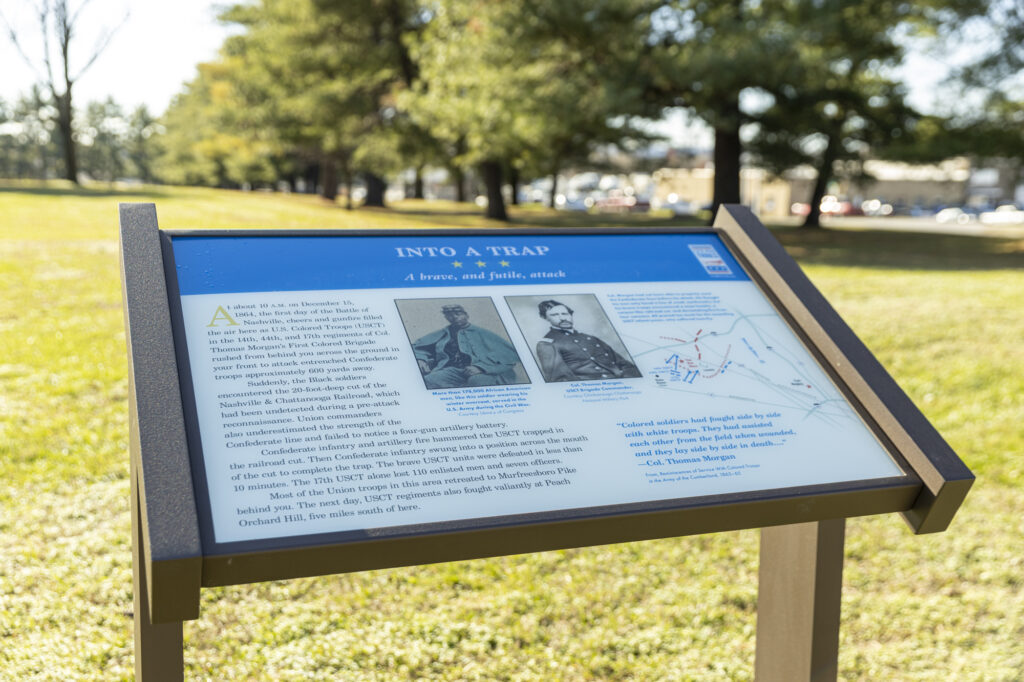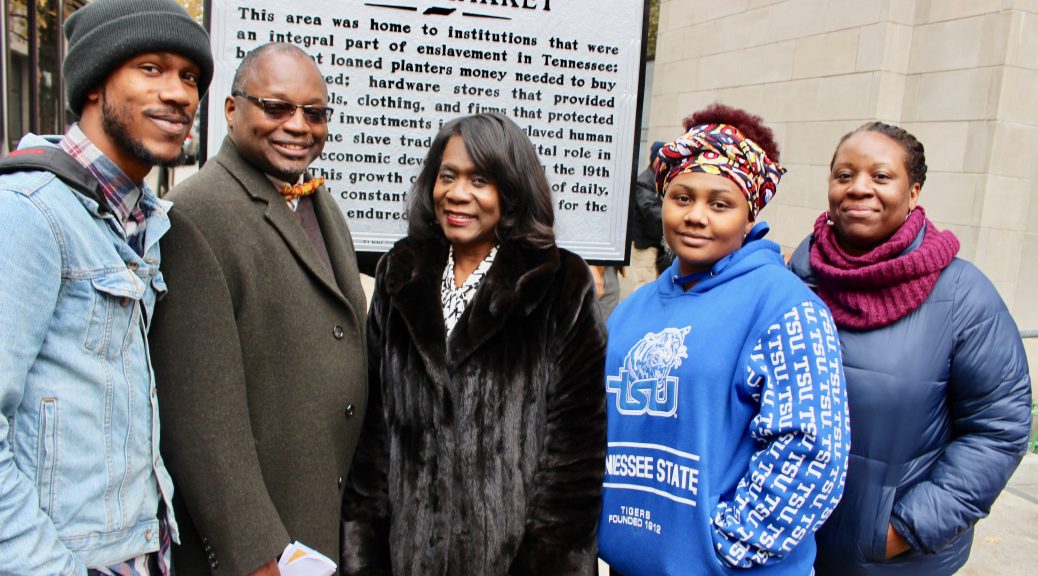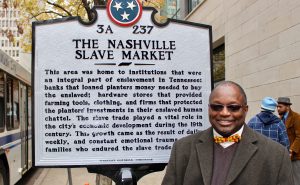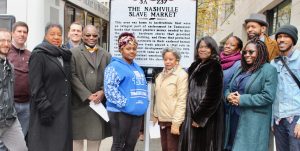NASHVILLE, Tenn. (TSU News Service) – The first Civil War Trails marker paying homage to three African American regiments has been unveiled in Nashville. The marker is located on Foster Avenue near STEM Prep High School. Tennessee State University associate professor of history Dr. Learotha Williams played a major role in the historic project that details the story of the former slaves fighting in the city during the Civil War for the first time as United States soldiers.
Williams said during the event that the marker site highlights the important contributions of the U.S. Colored Troops (USCT).
“This battle, this marker, and this moment only represents a new chapter in our understanding of the Civil War in history and our collective memory,” Williams said. “Be mindful that this should be the starting point and not an end. There is much more that we have to discover and learn about the Civil War.”
Dr. Williams helped bring the marker to light by providing his research about the regiments of the USCT. It was noted that this dedication took place 158 years to the exact date of the Battle of Nashville in 1864, involving the three Black regiments.
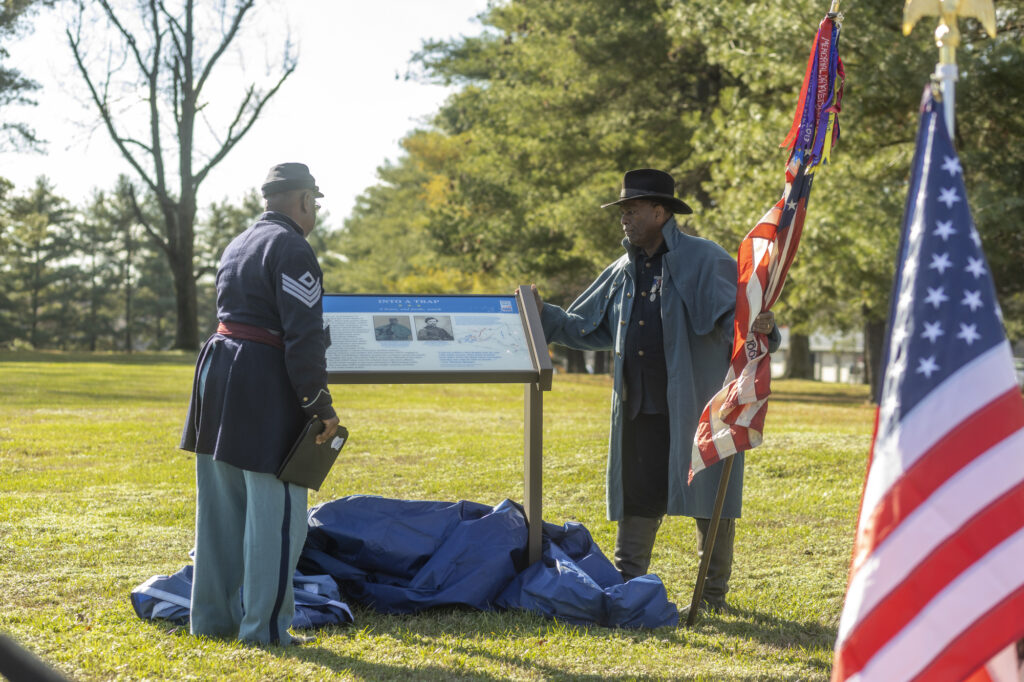
Those attending included representatives from the Battle of Nashville Trust, Stem Prep High School, Civil War Trails, and Tennessee Department of Tourist Development. During the unveiling, several presenters spoke about the need to preserve and expand the number of markers that honor the impact African Americans made on the war.
One of Williams’ history students, Jasmine Sears, said she is excited to see another part of history being honored in a positive light in Nashville.
“I view the unveiling of this marker as a testament to the achievements of African Americans and their role in the development of Nashville,” Sears of Atlanta, GA, said.
“Many people don’t fully understand the impact African American soldiers had on a war that was fought so close to home, but I hope this marker will change that.”
Sears said she looks forward to pursuing a career in public history to educate people on unknown history that is closer to them than they think.
USCT regiments are also noted to have fought valiantly at Peach Orchard Hill, which is five miles south of were the new marker stands. Dr. Williams says he has hopes that a marker will be placed there in the near future.
The state of Tennessee joined the Civil War Trails program in 2008 with over 350 sites in Tennessee for guest to visit the footsteps of trailblazers like the men who were honored this week for their bravery on Dec. 15, 1864.
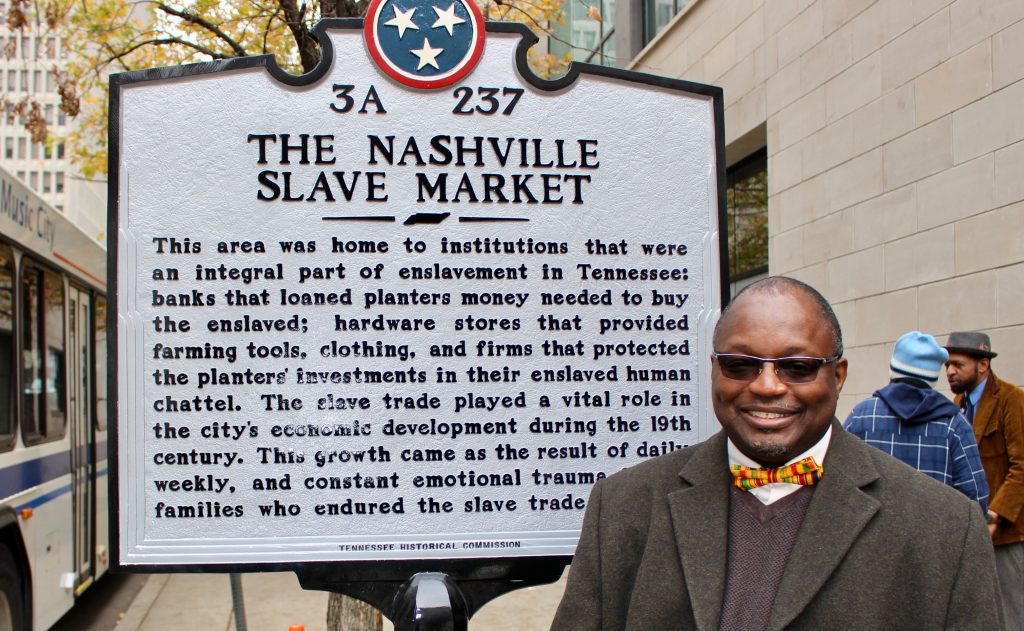
Visit this link here to hear Dr. Williams’ remarks and see the unveiling of the historic marker.
To learn more about the Civil War Trails visit www.civilwartrails.org/.
